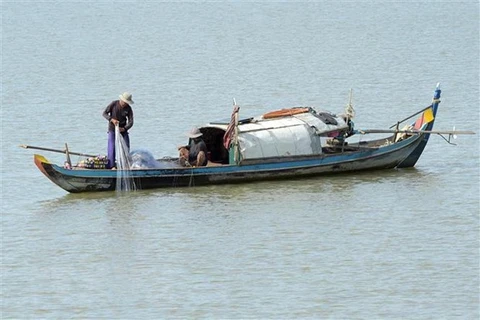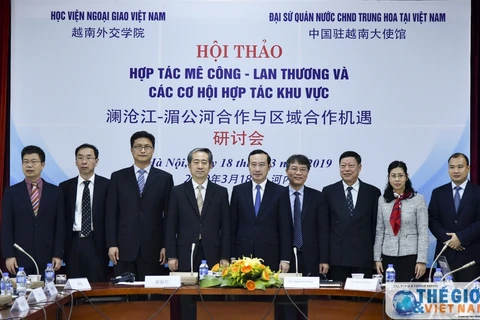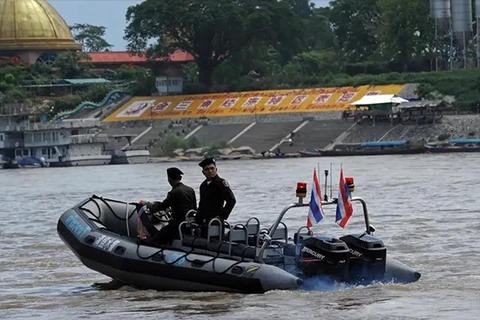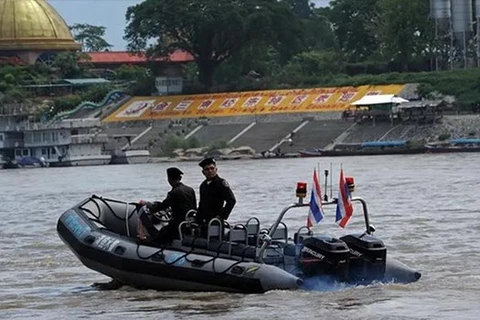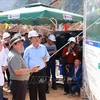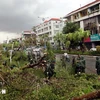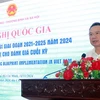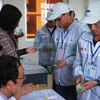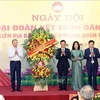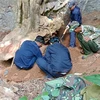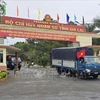Hanoi (VNA) – The Vietnam National Mekong Committee (VNMC) and the Vietnam Rivers Network held a consultation seminar in Hanoi on May 27 to discuss promoting public involvement in decision-making regarding the Mekong River water governance.
Speaking at the event, Chief of the VNMC Office Le Duc Trung said the event aims to give updates on cooperation outcomes within the framework of the Mekong River Commission and the VNMC, as well as enhance the involvement of social, non-governmental organisations and the community in Mekong River water governance amid socio-economic development in mainstream countries and climate change, thus contributing to decision making in the Mekong River water governance to protect water resources in the Mekong River basin in general, and the Mekong Delta and Central Highlands in particular.
Associate Professor Le Anh Tuan, from the Can Tho University’s Dragon-Mekong Institute, said the Mekong Delta is home to 4 million ha of natural land, lying in the lower reach of the Mekong River and receiving over 85 percent of its water before it flows to the East Sea and the Gulf of Thailand.
The region is facing challenges in Mekong River water governance regarding human resources, basic data, and adaptability, he said, suggesting that dialogues between water governance agencies, water suppliers, and the community should be enhanced while holding more communications campaigns to raise awareness amongst the community about water resources.
Commenting on the efforts made along the 3S (Se Kong, Se San, Srepok) river system in the Central Highlands provinces of Kon Tum, Gia Lai, Dak Lak, Dak Nong, and parts of the Mekong Delta province of Lam Dong and the central province of Thua Thien-Hue, former Director of the provincial Department of Agriculture and Rural Development Pham Huu Hao suggested establishing a council in charge of water governance with the involvement of member socio-political organisations, building its operation regulations approved by competent authorities, and holding regular dialogues with parties concerned in the field.
Several opinions proposed providing incentives to encourage community members to join the effort. –VNA
Speaking at the event, Chief of the VNMC Office Le Duc Trung said the event aims to give updates on cooperation outcomes within the framework of the Mekong River Commission and the VNMC, as well as enhance the involvement of social, non-governmental organisations and the community in Mekong River water governance amid socio-economic development in mainstream countries and climate change, thus contributing to decision making in the Mekong River water governance to protect water resources in the Mekong River basin in general, and the Mekong Delta and Central Highlands in particular.
Associate Professor Le Anh Tuan, from the Can Tho University’s Dragon-Mekong Institute, said the Mekong Delta is home to 4 million ha of natural land, lying in the lower reach of the Mekong River and receiving over 85 percent of its water before it flows to the East Sea and the Gulf of Thailand.
The region is facing challenges in Mekong River water governance regarding human resources, basic data, and adaptability, he said, suggesting that dialogues between water governance agencies, water suppliers, and the community should be enhanced while holding more communications campaigns to raise awareness amongst the community about water resources.
Commenting on the efforts made along the 3S (Se Kong, Se San, Srepok) river system in the Central Highlands provinces of Kon Tum, Gia Lai, Dak Lak, Dak Nong, and parts of the Mekong Delta province of Lam Dong and the central province of Thua Thien-Hue, former Director of the provincial Department of Agriculture and Rural Development Pham Huu Hao suggested establishing a council in charge of water governance with the involvement of member socio-political organisations, building its operation regulations approved by competent authorities, and holding regular dialogues with parties concerned in the field.
Several opinions proposed providing incentives to encourage community members to join the effort. –VNA
VNA

